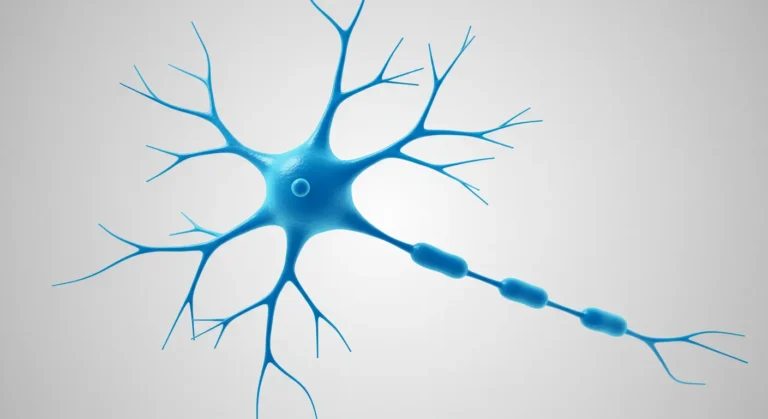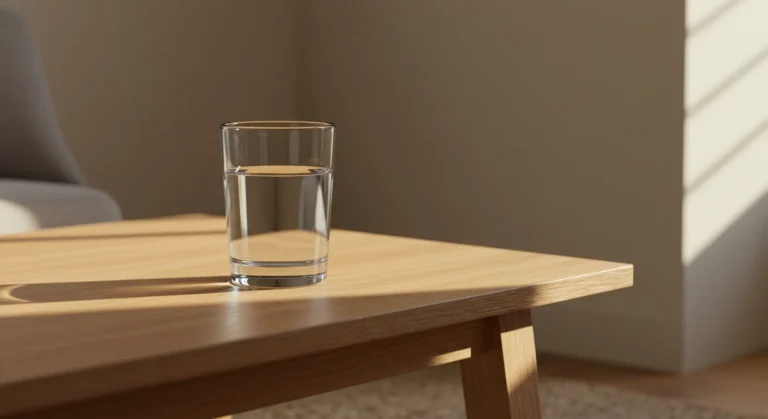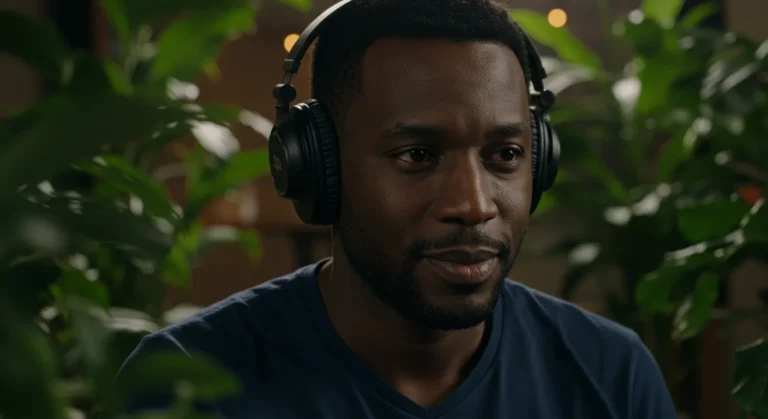Increase Brain Power: The Practical Guide to Boost Focus, Mental Clarity and Productivity

Have you ever sat at your desk, staring at your computer screen, feeling like your brain is wrapped in cotton? You know that foggy, sluggish feeling when simple tasks feel impossible, and you can’t shake the mental clutter no matter how much coffee you drink?
We’ve been there too. In fact, just three years ago, Federico was struggling so badly with brain fog that he’d reread the same paragraph five times without absorbing a single word. Giulia remembers days when she’d walk into rooms and completely forget why she went there – not once, but repeatedly throughout the day.
The frustrating part? We knew we were capable of so much more. Our brains felt like powerful computers running on dial-up internet.
That’s when we discovered something game-changing: increase brain power isn’t about pushing harder or drinking more stimulants. It’s about creating the right conditions for your mind to thrive through simple, sustainable healthy brain habits.
Today, we want to share everything we’ve learned about boosting mental clarity, improving focus, and reclaiming the sharp, energized mind you know you have inside you. This isn’t another overwhelming productivity hack list – it’s a practical roadmap based on real science and real results.
Why Mental Clarity Is a Superpower in Modern Life
Think about the most successful people you know. What sets them apart isn’t necessarily their intelligence or education – it’s their ability to focus deeply, think clearly, and make decisions without getting lost in mental fog.In our hyperconnected world, the ability to maintain mental clarity has become as valuable as any technical skill. While everyone else is drowning in distractions, people with sharp focus can cut through the noise, create meaningful work and increase brain power.
The Hidden Cost of Mental Fog
Brain fog isn’t just an inconvenience – it’s quietly sabotaging your potential. When Giulia tracked her productivity during her foggiest months, she discovered she was spending 3-4 hours accomplishing what should have taken 90 minutes.
The real cost goes beyond lost time:
- Decision fatigue from struggling with simple choices
- Emotional drain from feeling “not quite yourself”
- Missed opportunities because you’re not operating at full capacity
- Relationship strain when you’re not fully present with loved ones
Understanding the connection between our physical state and mental clarity is crucial. For example, an article from the Central Coast Center for Integrative Health, which you can find here, explains how chronic inflammation can directly contribute to brain fog by hindering neuronal energy production and communication, while also offering hope that this can be addressed.
The Case for Building Focus Like a Muscle
Here’s what changed everything for us to increase brain power: we stopped treating focus as something we either “had” or “didn’t have” and started training it like any other skill.
Just like you wouldn’t expect to run a marathon without training, you can’t expect peak mental focus without building that capacity gradually. The difference is, focus training doesn’t require hours at the gym – it happens through small, consistent shifts in how you live each day.
When Federico started treating his attention span like a muscle that needed strengthening, he went from struggling to read for 15 minutes to easily maintaining deep focus for 2-3 hour stretches. The secret to increase brain power wasn’t willpower – it was creating the right conditions.
How Lifestyle Habits Shape Your Mental Performance
Your brain doesn’t exist in isolation. Every choice you make – from what you eat for breakfast to how you spend your evening – either supports or undermines your cognitive performance.
We used to think that mental clarity was mostly genetic. Some people were naturally sharp, others weren’t. What we’ve learned through both research and personal experience is that your daily habits have far more impact on brain function than your DNA.
Increase Brain Power: The Link Between Movement, Nutrition and Focus
Let’s start with something that might surprise you: your afternoon brain fog probably has more to do with your morning walk (or lack thereof) than your mental capabilities.
Movement as Brain Medicine
When you move your body, you’re not just exercising muscles – you’re literally growing new brain cells. Neuroplasticity research shows that physical activity triggers the release of BDNF (brain-derived neurotrophic factor), which acts like fertilizer for your neurons.
Federico noticed his biggest breakthrough came when he started taking a 20-minute walk before his most challenging work. Not a intense workout – just a gentle walk around the neighborhood. His ability to improve concentration increased dramatically, and the effects lasted for hours.
Brain-Healthy Nutrition That Actually Works
Forget complicated brain healthy diet plans. The most effective nutrition strategies for mental clarity are surprisingly simple:
| Brain-Boosting Food Category | Why It Works | Easy Examples |
| Omega-3 Rich Foods | Support neurotransmitter production | Wild salmon, walnuts, chia seeds |
| Antioxidant Powerhouses | Protect against cognitive decline | Blueberries, dark chocolate, green tea |
| Complex Carbohydrates | Provide steady brain fuel | Quinoa, sweet potatoes, oats |
| Hydration Heroes | Prevent cognitive slowdown | Water, herbal teas, coconut water |
The key isn’t perfection – it’s consistency. Giulia found that simply adding a handful of blueberries to her morning routine and switching from coffee to green tea in the afternoon eliminated 80% of her brain fog symptoms.
Rituals That Create Flow and Presence
The most successful people we know don’t rely on motivation – they rely on systems. Creating simple rituals that support brain function removes the guesswork and makes peak performance automatic.
Morning Activation Ritual
Instead of reaching for your phone first thing, try this 10-minute sequence:
- Hydrate mindfully – drink a full glass of water while taking five deep breaths
- Move gently – simple stretches or a few minutes of walking
- Set intention – write down one important thing you want to accomplish
Increase brain power isn’t about becoming a morning person – it’s about giving your brain the signal that it’s time to wake up and focus.
Midday Reset Practice
When mental energy starts to dip (usually around 2-3 PM), most people reach for caffeine or sugar. Instead, try what we call the “5-minute brain refresh”:
- Step away from screens
- Take 10 slow, deep breaths
- Do gentle neck and shoulder stretches
- Drink a glass of water
- Set a clear intention for the next work block
This simple practice consistently helps people improve mental clarity and increase brain power without the crash that comes from stimulants.
Brain-Boosting Tools and Practices (That Don’t Require Willpower)
The best brain training doesn’t feel like training at all. The most effective techniques we’ve discovered work with your natural rhythms rather than against them.
The Two-Minute Rule for Attention Training
Start ridiculously small. Instead of trying to meditate for 20 minutes, begin with just two minutes of focused breathing. The goal isn’t to empty your mind – it’s to notice when your attention wanders and gently bring it back.
Federico was skeptical about increase brain power with meditation until he tried this micro-approach. After just one week of two-minute sessions, he noticed his ability to catch mind-wandering and refocus had improved dramatically in all areas of life.
Environmental Design for Effortless Focus
Your environment is constantly sending signals to your brain. Small changes can create big improvements in your ability to stay focused:
- Declutter your workspace – visual clutter creates mental clutter
- Use natural light when possible – artificial light can drain mental energy
- Remove distracting objects from your line of sight during focused work
- Create a “focus station” – a specific spot associated only with deep work
The Pomodoro Technique with a Twist
Traditional time management often feels rigid and stressful. We’ve modified the classic Pomodoro technique to work with your natural energy:
Instead of strict 25-minute blocks, work in waves:
- Start with whatever feels manageable (15-45 minutes)
- Take breaks when you feel your attention naturally fading
- Use breaks for gentle movement, not scrolling social media
- Gradually extend your focus periods as your attention span strengthens
Digital Tools to Track, Simplify, and Improve Focus
Technology can either help or hurt your cognitive performance. The key is choosing tools that support brain health rather than fragmenting your attention.
Apps That Actually Improve Focus
- Brain.fm – scientifically designed soundscapes that enhance concentration
- Forest – gamifies focus by growing virtual trees during work sessions
- RescueTime – tracks how you actually spend your time on devices
- Headspace or Calm – for accessible meditation and mindfulness training
Digital Minimalism for Mental Clarity
The most powerful digital tool might be using technology less. We’ve found these strategies particularly effective:
- Phone-free mornings – keep devices out of the bedroom
- Notification batching – check messages at specific times rather than constantly
- Single-tasking apps – tools that allow only one application open at a time
- Blue light filters – especially important in the evening for sleep quality
About Us: Why This Isn’t Just Another Productivity Guide
You might be wondering who we are and why you should trust our approach to increase brain power. Fair question.
Increase Brain Power: Our Experience with Focus, Burnout and Rebuilding
A few years ago, we were the poster children for productivity burnout. Federico was working 12-hour days, fueled by caffeine and stress, wondering why his mental performance kept declining despite all his “optimization” efforts. Giulia was juggling multiple projects, feeling scattered and overwhelmed, unable to give her best to anything.
We tried everything: complex supplement stacks, rigid scheduling systems, expensive biohacking gadgets. Some things helped temporarily, but nothing created lasting change until we shifted our entire approach.
The breakthrough came when we stopped trying to hack our brains like machines and started treating them like the complex, interconnected systems they are. Instead of forcing peak performance, we began creating conditions where clarity and focus could emerge naturally.
Our Biohacker-But-Human Philosophy
We love science and optimization, but we’re also realistic about what works in real life. Our approach combines evidence-based strategies with practical wisdom gained from working with hundreds of people struggling with focus challenges.
What makes our method different:
- Start small – massive changes rarely stick
- Work with your personality – not against it
- Focus on systems – not just individual techniques
- Measure what matters – energy and clarity, not just productivity metrics
- Build gradually – sustainable improvement takes time
We help you feel better every day with practical, science-based strategies that truly work – not because we read about them, but because we’ve lived them.
A Step-by-Step Plan to Get Started Today
The gap between knowing what to do and actually doing it is where most people get stuck. Let’s bridge that gap with a concrete action plan. Choose the single strategy that feels most manageable right now. Success builds on success, and starting small ensures you’ll actually follow through.
Use a Free Focus Tracker to Stay On Track
Tracking progress keeps you motivated and helps you notice patterns. Instead of complicated metrics, track simple indicators:
Daily Focus Journal Questions:
- How clear did my thinking feel today? (1-10 scale)
- What time of day was my focus strongest?
- What helped or hindered my mental clarity?
- What am I grateful for about my mental performance today?
Weekly Reflection:
- Which strategies felt most natural and sustainable?
- What patterns do I notice in my energy and focus?
- What small adjustment would make the biggest difference next week?
Favorite Nootropics and Tools (With Real-World Results)
While lifestyle changes provide the foundation, certain supplements can offer additional support for brain health. Here’s what we’ve found most effective to increase brain power through personal testing and client feedback:
Natural Nootropics That Work:
- Lion’s Mane Mushroom – supports neuroplasticity and cognitive function
- Rhodiola Rosea – helps with stress adaptation and mental fatigue
- Magnesium Glycinate – crucial for relaxation and sleep quality
- Omega-3 Fish Oil – essential for brain health and inflammation reduction
Physical Tools for Better Focus:
- Standing desk converter – alternating between sitting and standing
- Blue light blocking glasses – especially helpful for evening screen use
- Noise-canceling headphones – create an instant focus environment
- Essential oil diffuser – peppermint and rosemary can enhance alertness
Remember: supplements and tools are supportive, not foundational. Start with lifestyle changes, then add extras if needed.
Curious to Go Deeper?
Your journey to increase brain power doesn’t end here. Building sustainable healthy brain habits is an ongoing process of discovery and refinement.
The most important thing to remember? Increasing brain power is about progress. Small, consistent changes compound over time to create remarkable transformations in mental clarity and focus.
Your brain has incredible capacity for growth and adaptation at any age. By working with your natural rhythms and creating supportive conditions, you can unlock the sharp, energized mind that’s been waiting inside you all along.
Start small, be patient with the process, and trust that every positive change you make is moving you toward the mental clarity and focus you deserve.
Ready to continue your journey towards a sharper mind? Explore our other articles for more in-depth guides, practical tips, and scientific insights on optimizing your brain health and cognitive function!
Disclaimer: The information provided is for educational purposes only, not a substitute for professional medical advice. Always consult a healthcare professional.







